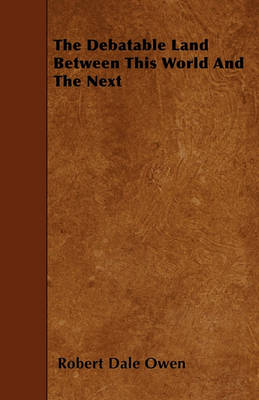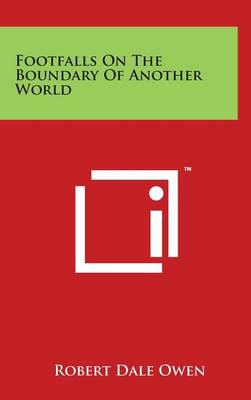Cambridge Library Collection - Spiritualism and Esoteric Knowledge
2 total works
Robert Dale Owen (1801-1877) left Scotland at the age of twenty-four to help run an experimental colony in New Harmony, Indiana, established by this father Robert Owen, the social reformer. While in the United States, he became a prominent proponent of slave emancipation and public education, eventually joining the Indiana legislature before moving on to become a member of the United States Congress, which led to his posting as a diplomat in Naples. In addition to his political interests, Owen was fascinated with the world of spiritualism. In this work, published in 1871, he assesses Protestantism and Catholicism and considers how spiritualism can 'confirm the truths and assure the progress of Christianity'. He goes on to explain at length the characteristics of spiritualism, including the physical manifestations and identity of spirits, as well as his own experience of apparitions.
Robert Dale Owen (1801-1877) was born in Scotland and emigrated to the United States in 1825 to help his social reformer father Robert Owen set up an experimental community in New Harmony, Indiana. He was elected to the US House of Representatives in 1842, and appointed US minister at Naples in 1853. In addition to his political career, Owen was a follower of spiritualism. In Footfalls on the Boundary of Another World, published in 1860, he draws from his own observations of supernatural phenomena as well as published research in fields such as psychology. Owen's comprehensive study addresses six thematic areas. He starts by comparing attempts to navigate uncharted spiritual waters to Christopher Columbus' voyages of discovery, and then moves on to examine themes such as dreams, disturbances and apparitions.

